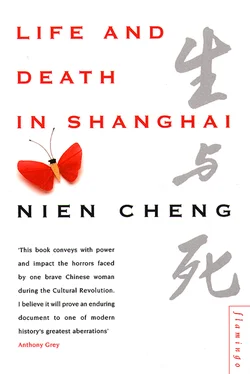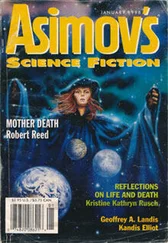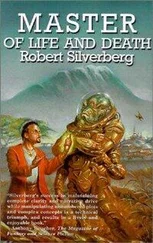The young man snatched the document out of my hand and threw it on the floor. With his eyes blazing, he said, ‘The Constitution is abolished. It was a document written by the Revisionists within the Communist Party. We recognize only the teachings of our Great Leader Chairman Mao.’
‘Only the People’s Congress has the power to change the Constitution,’ I said.
‘We have abolished it. What can you do about it?’ he said aggressively while assuming a militant stance with his feet apart and shoulders braced.
A girl came within a few inches of where I stood and said, ‘What trick are you trying to play? Your only way out is to bow your head in submission. Otherwise you will suffer.’ She shook her fist in front of my nose and spat on the floor.
Another young man used a stick to smash the mirror hanging over the blackwood chest facing the front door. A shower of glass fell on the blue and white K’ang Hsi vase on the chest but the carved frame of the mirror remained on the hook. He tore the frame off and hurled it against the banister. Then he took from another Red Guard a small blackboard which he hung up on the hook. On it was written a quotation from Mao Tze-tung. It said, ‘When the enemies with guns are annihilated, the enemies without guns still remain. We must not belittle these enemies.’
The Red Guards read the quotation aloud as if taking a solemn oath. Afterwards, they told me to read it. Then one of them shouted to me, ‘An enemy without gun! That’s what you are. Hand over the keys!’
I placed my bunch of keys on the chest amidst the fragments of glass. One of them picked it up. All the Red Guards dispersed into various parts of the house. A girl pushed me into the dining room and locked the door.
I sat down by the dining table and looked around the room. It was strange to realize that after this night I would never see it again as it was. The room had never looked so beautiful as it did at that moment. The gleam of the polished blackwood table was richer than ever. The white lacquered screen with its inlaid ivory figures stood proudly in one corner, a symbol of fine craftsmanship. The antique porcelain plates and vases on their blackwood stands were placed at just the right angle to show off their beauty. Even the curtains hung completely evenly, not a fraction out of line. In the glass cabinet were white jade figures, a rose quartz incense burner and ornaments of other semi-precious stones that I had lovingly collected over the years. They had been beautifully carved in intricate designs by the hands of skilled artists. Now my eyes caressed them to bid them farewell. Having heard from Winnie that the painter Ling Fong-min was in serious trouble, I knew that his painting of a lady in blue hanging over the sideboard would be ruthlessly destroyed. But what about the other ink and brush painting by Chi Pei Shi? He was a great artist of the traditional style. Because of his having been a carpenter in early life, he was honoured by the Communist Party. Would the Red Guards know the facts of Chi Pei Shi’s life and spare this painting? I looked at it carefully, my eyes lingering over each stroke of his masterful brush. It was a picture of the lotus, a favourite subject of Chinese artists because the lotus symbolized purity. The poet Tao Yuan Ming (AD 376-427) used the lotus to represent a man of honour in a famous poem, saying that the lotus rose out of mud but remained unstained.
I recited the poem to myself and wondered whether it was really possible for anyone to remain unstained by his environment? It was an idea contrary to Marxism, which held that the environment moulded the man. Perhaps the poet was too idealistic, I thought as I listened to the laughter of the Red Guards overhead. They seemed to be blissfully happy in their work of destruction because they were sure they were doing something to satisfy their God, Mao Tze-tung. Their behaviour was the result of their upbringing from childhood in Communist China. The propaganda they had absorbed precluded their having a free will of their own.
A heavy thud overhead stopped my speculations. I could hear the sound of many people walking up and down the stairs, glasses being broken and heavy knocking on the wall. The noise intensified. It sounded almost as if the Red Guards were tearing the house down rather than merely looting its contents. I became alarmed and decided to try to secure my release by deception.
I knocked on the door. There was such a din in the house that no one heard me. I knocked harder and harder. When I heard a movement outside the door, I called out, ‘Open the door!’
The handle was turned slowly and the door opened a narrow gap. A girl Red Guard in pigtails asked what I wanted. I told her I had to go to the bathroom. She let me out after cautioning me not to interfere with their revolutionary activities.
The Red Guards had taken from the storeroom the crates containing my father’s books and papers and were trying to open them with pliers in the hall. Through the open drawing room door, I saw a girl on a ladder removing the curtains. Two bridge tables were in the middle of the room. On them were laid a collection of cameras, watches, clocks, binoculars and silverware which the Red Guards had gathered from all over the house. These were the ‘valuables’ they intended to present to the State.
Mounting the stairs, I was astonished to see several Red Guards taking pieces of my porcelain collection out of their padded boxes. One young man had arranged a set of four K’ang Hsi winecups in a row on the floor and was stepping on them. I was just in time to hear the crunch of delicate porcelain under the sole of his shoe. The sound pierced my heart. Impulsively I leapt forward and caught his leg just as he raised his foot to crush the next cup. He toppled. We fell in a heap together. My eyes searched for the other winecups to make sure we had not broken them in our fall, and, momentarily distracted, I was not able to move aside when the boy regained his balance and kicked me right in my chest. I cried out in pain. The other Red Guards dropped what they were doing and gathered around us, shouting at me angrily for interfering in their revolutionary activities. One of the teachers pulled me up from the floor. With his face flushed in anger, the young man waved his fist, threatening me with a severe beating. The teacher raised her voice to restore order. She said to me, ‘What do you think you are doing? Are you trying to protect your possessions?’
‘No, no, you can do whatever you like with my things. But you mustn’t break these porcelain treasures. They are old and valuable and cannot be replaced,’ I said rather breathlessly. My chest throbbed with pain.
‘Shut up! Shut up!‘ A chorus of voices drowned my voice.
‘Our Great Leader said, “Lay out the facts; state the reasons”, I summoned all my strength and yelled at the top of my voice to be heard.
The teacher raised her hand to silence the Red Guards and said, ‘We will allow you to lay out the facts and state the reasons.’ The Red Guards glared at me.
I picked up one of the remaining winecups and cradled it in my palm. Holding my hand out, I said, ‘This winecup is nearly three hundred years old. You seem to value the cameras, watches and binoculars, but better cameras, better watches and more powerful binoculars are being made every year. No one in this world can make another winecup like this one again. This is a part of our cultural heritage. Every Chinese should be proud of it.’
The young man whose revolutionary work of destruction I had interrupted said angrily, ‘You shut up! These things belong to the old culture. They are the useless toys of the feudal Emperors and the modern capitalist class and have no significance to us, the proletarian class. They cannot be compared to cameras and binoculars which are useful for our struggle in time of war. Our Great Leader Chairman Mao taught us, “If we do not destroy, we cannot establish.” The old culture must be destroyed to make way for the new socialist culture.’
Читать дальше












